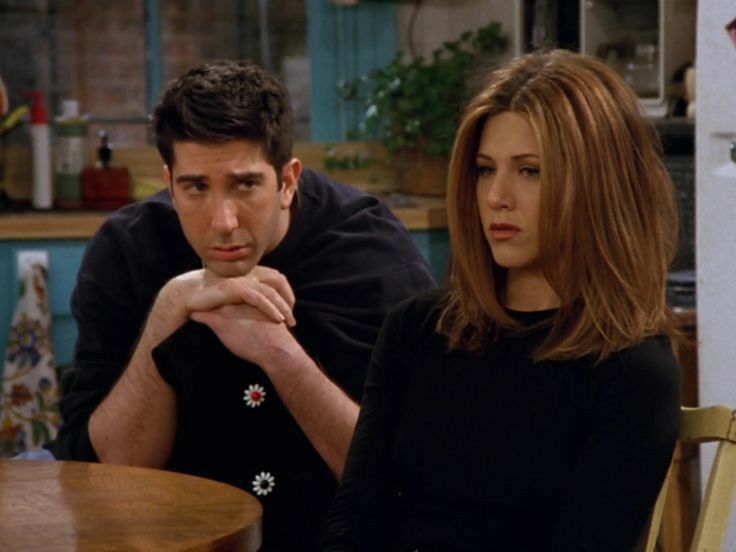We Were on a Break… or Was That a Breakup?
Every woman has lived through this conversation at least once: the man who swore you two were just “on a break,” not actually broken up. Months later, after you’ve cried, healed, maybe even dated someone else, he reappears with the classic male revisionist history, “but we weren’t really over.”
And then, like a scene written by a drunk scriptwriter, he admits he slept with other people during the “break”… but insists it didn’t count because again, “you were on a break.”
It’s the oldest trick in the book. And yet, Hollywood keeps replaying it because no debate gets audiences riled up quite like break vs breakup.
The most recent headline example? The Summer I Turned Pretty. Jeremiah cheats on Belly while they’re “on a break.” Immediately, it was chaos, Twitter debates, and the collective scream of everyone who has ever been ghosted with the phrase, “I just need time,” while watching him hang out with another girl.
But this isn’t new. Remember Ross and Rachel in Friends? The phrase “WE WERE ON A BREAK!” has lived rent-free in pop culture since the ’90s. And as much as we’re happy they ended up together, nobody can fully agree on whether Ross was in the right. (Spoiler: he wasn’t. Don’t @ me.)
Break vs. Breakup: Hollywood’s Favourite Loophole
This isn’t just Ross and Rachel or Jeremiah and Belly. It’s Carrie and Big in Sex and the City, where every “taking space” interlude meant one of them ended up in someone else’s bed. It’s Noah and Allie in The Notebook, where seven years of no contact was somehow still just a “pause.”
Hollywood knows this storyline works because it’s our lives, too. Nothing fuels late-night rants with girlfriends like the question: Were we broken up, or was he just using vague wording as a free pass?
Here’s the thing:
- A breakup is final. No questions, no debates. You return each other’s hoodies, unfollow on Instagram, and probably spend a weekend crying into ice cream.
- A break is… what exactly? “Let’s pause, but keep the hope alive”? “I want to see what life is like without you, but please don’t move on.” Breaks are basically the beta version of breakups, unfinished, glitchy, and always leading to a system crash.
Why Breaks Are Always a Men’s Game
Let’s be honest: breaks are not gender-neutral. Women hear “break” and think: reflection, therapy, journaling, maybe a self-help book. Men hear “break” and think: “Cool, so I can hook up with Vanessa from work and still circle back if I get bored.”
It’s not even subtle. The male logic trap goes like this:
- If they cheat, it’s “we were on a break.”
- If you so much as text another man, it’s “so you moved on that fast? Wow.”
A break is just a breakup that men think they can come back from without flowers. It’s less about truth and more about having an alibi ready. “Breaks” become the perfect loophole: serious enough to free them from commitment, vague enough to let them crawl back later.
Why Women Don’t Buy It
Because the cost is never equal, women spend breaks waiting, staying loyal, analysing every message, hoping reconciliation is still on the table. Men? They treat breaks like trial separations with unlimited swipes on Tinder.
This is why women roll their eyes when men pull the “we were on a break” card. We know it’s not about love, it’s about convenience. If the break benefits them, it counts. If it hurts them, it was obviously a breakup.
And then, after all the drama, they’ll return months later, expecting you to pick up where you left off. You’ll ask if they slept with someone else. He’ll shrug and say, “Well, yeah… but we weren’t together.” Funny how the definition always tilts in their favour.
Men use breaks as exit doors they can leave open, while women are left holding the emotional baggage. We crave clarity; they thrive in ambiguity.
That’s why the debate never dies. From Ross to Jeremiah, every generation will keep fighting over whether the “break” defence holds up. Spoiler: it doesn’t.
Why We Keep Fighting About It
The “break” vs. “breakup” debate isn’t really about rules. It’s about ownership of pain.
If it were a breakup, them getting into a new relationship would feel expected. If it were a break, it feels like betrayal. It’s less about love and more about semantics, a tiny word standing between heartbreak and justification.
Here’s the nuance: breaks can be healthy. Sometimes, couples need space to calm down after too many fights, to reflect individually, or to step back and gain a clearer perspective on the relationship. That’s not weakness, that’s maturity.
But here’s the non-negotiable part: a break is not a licence to cheat. Unless you’ve said the words “we are breaking up”, your body stays where your relationship is. Period. Your situationship shouldn’t be auditioning side characters while the main script is on hold.
This is where communication matters. If you’re going on a break, you need to have the uncomfortable, grown-up conversation:
- Are we breaking up or taking a break?
- If it’s a break, what does that mean?
- Are we allowed to see other people or not?
We live in the 21st century. Nobody gets to hide behind vagueness anymore. You don’t avoid “being too much” by staying quiet; you avoid heartbreak by being clear.
Read also: Hollywood’s favourite scam: Broke boy propaganda
The Leading Events That Tell You the Truth
So, how do you know if you were on a break, or if you were officially broken up? Let’s test it with scenarios every girl knows too well:
- The Silent Treatment Test
If you didn’t talk for three months, he got a new situationship, and then he reappears saying “we weren’t really done”? Sorry, that’s a breakup. Silence is not a break. - The Sex Clause
If one person is dating, sleeping with, or even seriously texting someone else, no matter what label you give it, that’s a breakup. Love doesn’t need fine print. - The PR Box Rule
Modern edition. If he starts soft-launching someone else on Instagram, it’s not a break. It’s clearance season. - The Closure Trap
If he tells you later, “I didn’t think it was over,” but never checked on you during the break, he knew. He just wanted the option to rewrite history.
Breaks aren’t evil, but if he needs a dictionary to justify what he did, it wasn’t a break. It was a breakup. Period.
Final Verdict
So, were you on a break, or was it a breakup? Here’s the truth: if you need to argue about it, it was a breakup.
Breaks might sound softer, kinder, even romantic. But if the word leaves you crying at 2 a.m. while he’s out “exploring his options,” it was never a break; it was a much-needed goodbye.




